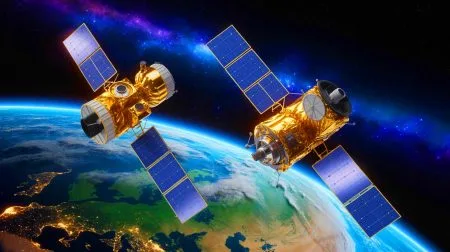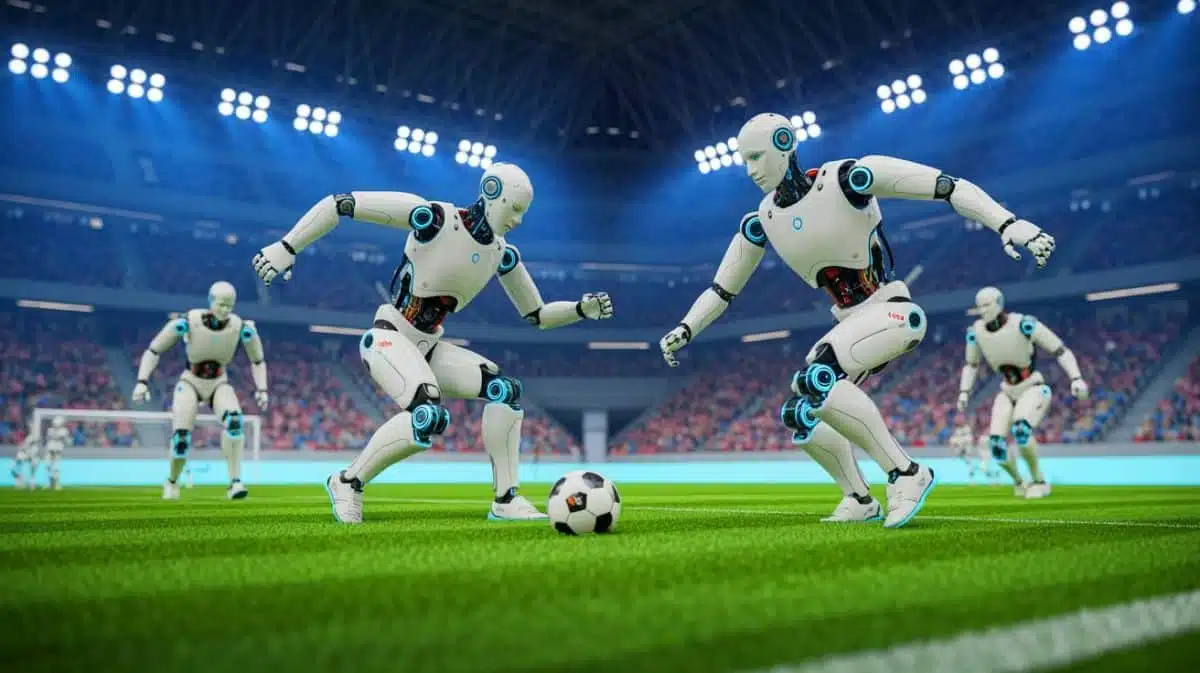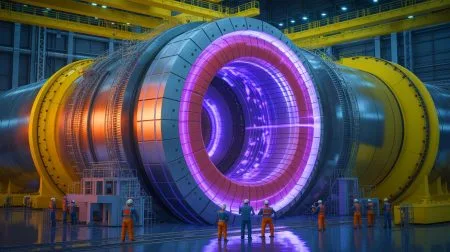| IN A NUTSHELL |
|
The world of sports and technology has been forever altered by a groundbreaking event in Beijing: the first-ever fully autonomous AI robot football match. This historic game, held at Beijing Information Science and Technology University and featuring participants from Tsinghua University, showcased the remarkable advances in artificial intelligence and robotics. The robots competed in a 3 vs. 3 soccer match, relying solely on their AI-driven strategies and visual sensors to navigate the field and score goals. This event not only marks a significant milestone in the realm of robotic sports but also hints at the transformative potential of AI in competitive arenas.
The Rise of AI in Sports
The inaugural AI-powered humanoid robot football match in China was more than just a novelty; it represented a pivotal moment in the integration of artificial intelligence into sports. The robots, equipped with advanced AI algorithms, played autonomously, showcasing their ability to make real-time decisions, balance, and recover from falls without human intervention. This level of autonomy is a testament to the rapid advancements in AI technology, which are increasingly finding applications in diverse fields.
As the robots donned their purple and black jerseys, they demonstrated remarkable agility and decision-making capabilities, aspects that are crucial in a fast-paced sport like soccer. The match consisted of two 10-minute halves, during which the robots not only competed fiercely but also celebrated their successes—lifting their hands in triumph after scoring goals. Such displays of machine autonomy are not only entertaining but also indicative of the sophisticated programming and sensor technologies driving these robots.
The implications of this event extend beyond entertainment. It signifies a shift towards a future where human and machine collaboration in sports could become commonplace, opening up new possibilities for training, strategy development, and even spectator engagement.
Technological Marvels on Display
The robots participating in this historic match were far from ordinary. Developed with state-of-the-art vision sensors and AI-driven tactics, they were capable of independently navigating the soccer field, identifying the ball, and coordinating with teammates to execute complex plays. Booster Robotics, the company behind these humanoid machines, highlighted how sporting events provide an ideal testing ground for refining robot algorithms and hardware-software integration.
Cheng Hao, CEO of Booster Robotics, emphasized the importance of such events for advancing robotic technology. The challenges faced by the robots during the game, such as maintaining balance and recovering from falls, mirror real-world scenarios, making them excellent tests of the robots’ capabilities. Despite some robots needing human assistance to be carried off the field, their ability to autonomously rise after falling added an element of realism to the match.
This technological showcase not only demonstrated the current capabilities of AI and robotics but also underscored the potential for future developments. As these technologies continue to evolve, the boundaries of what is possible in both robotic sports and broader AI applications will undoubtedly expand.
Unveiling Future Prospects
The success of the AI robot football match in China has set the stage for the upcoming World Humanoid Robot Games, also slated to take place in Beijing. This event promises to be a grander spectacle, bringing together teams from around the world to compete in a variety of sports, each leveraging the latest in AI and robotics technology.
The potential impact of these events is profound. Not only do they showcase the capabilities of current AI systems, but they also inspire further research and development in the field. For educational institutions like Tsinghua University and Beijing Information Science and Technology University, these matches offer valuable opportunities for students and researchers to test their innovations in a competitive environment.
Moreover, the growing interest in robotic sports could lead to the development of new industries focused on AI-driven entertainment and sports technology. As these events gain popularity, they may also influence public perception of AI, shifting it from a field of abstract research to one of tangible, exciting applications.
Implications for Society and Technology
The convergence of AI and sports, as illustrated by the robot football match, has far-reaching implications for society. It challenges traditional notions of competition and collaboration, prompting questions about the future role of AI in human activities. As AI systems become more sophisticated, they may take on increasingly complex roles, from assisting in decision-making processes to acting as autonomous agents in various fields.
This event also raises ethical considerations regarding the integration of AI into everyday life. As robots become more autonomous, questions about accountability, safety, and the impact on human employment and social interactions will need to be addressed. The dialogue surrounding these issues will be crucial in ensuring that AI technologies are developed and deployed responsibly.
As we witness the dawn of a new era in robotic sports, one must wonder: How will the continued evolution of AI and robotics reshape our understanding of competition, entertainment, and the very essence of human achievement?
Did you like it? 4.4/5 (30)








Wow, robots playing football? What’s next, robot referees? 🤖⚽
I’m all for technological advancements, but what about the jobs this might replace?
Can these robots play better than my Sunday league team? 😂
It’s impressive, but how far are we from creating robots who can play at a professional level?
Thanks for sharing this fascinating development in AI sports!
Why is China always at the forefront of these technological innovations?
How do these robot players compare to human players in terms of speed and agility?
Is it just me or does this sound like the beginning of a sci-fi movie plot? 😅
Great article! I’m excited to see where this technology will lead us.
How long before we see a fully automated World Cup?
What happens if a robot player malfunctions during a match?
Can these robots play in different weather conditions?
So cool! How can I attend one of these matches?
Was there any human intervention during the match? 🤔
I wonder how much energy these robots consume during a game.
Are there any safety concerns with autonomous robots on the field?
Can they play other sports too, or just football?
Is this the future of sports? I’m not sure how I feel about it.
How do they ensure the robots are following the rules?
Imagine a world where humans and robots compete together! 🤖👫
What a time to be alive! Technological advancements never cease to amaze me.
How are the robots programmed to handle fouls and penalties?
Thanks for the update, this is truly groundbreaking!
Does this mean we can expect robot cheerleaders too? 😂
Is there a league for these AI robot football teams?
How do these robots communicate with each other during the match?
I’m skeptical about this… are we really ready for AI-driven sports?
Can anyone just build a robot and join these competitions?
What about the emotional aspect of sports? Can robots ever match that? 🤔
How much do these robot players cost to build and maintain?